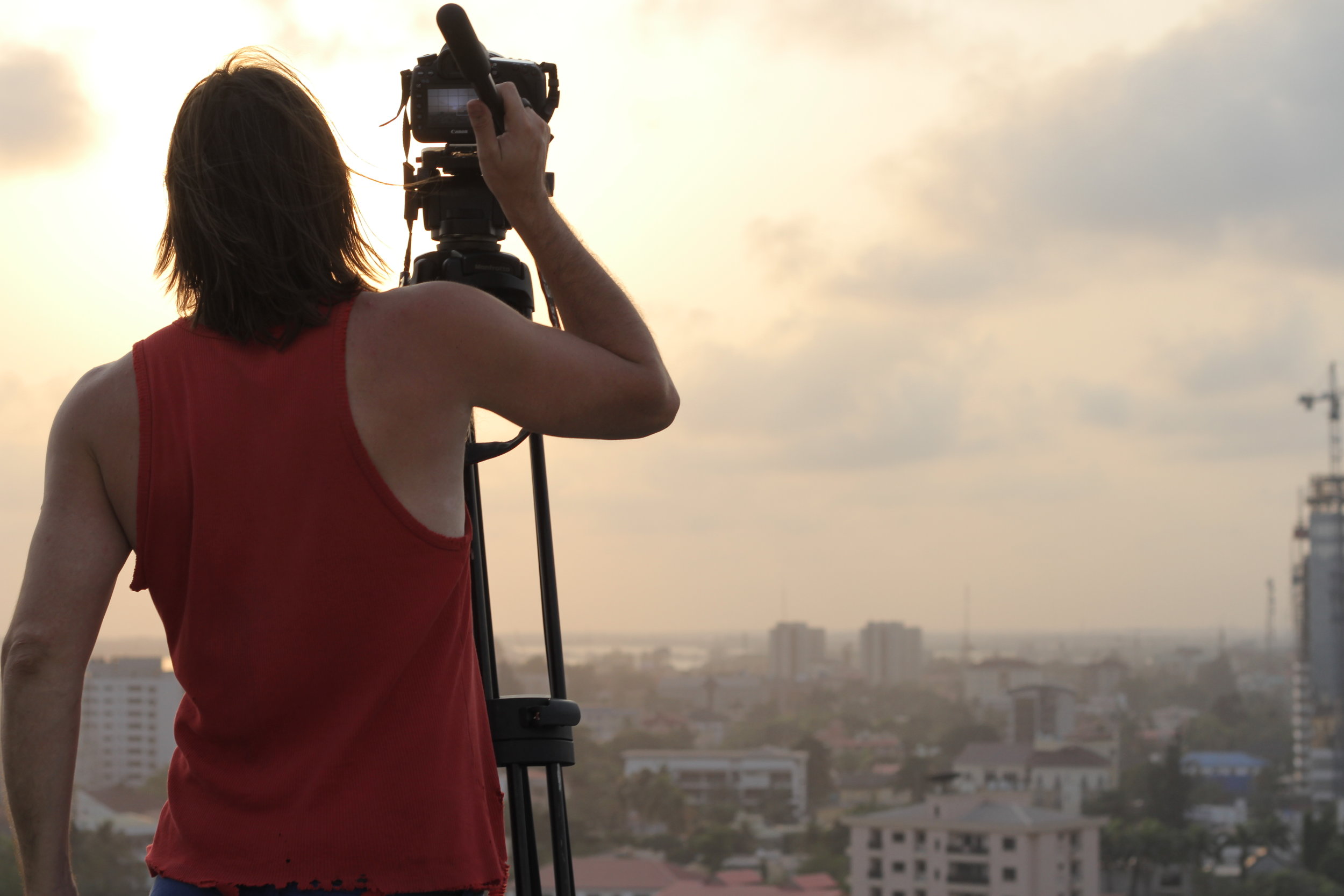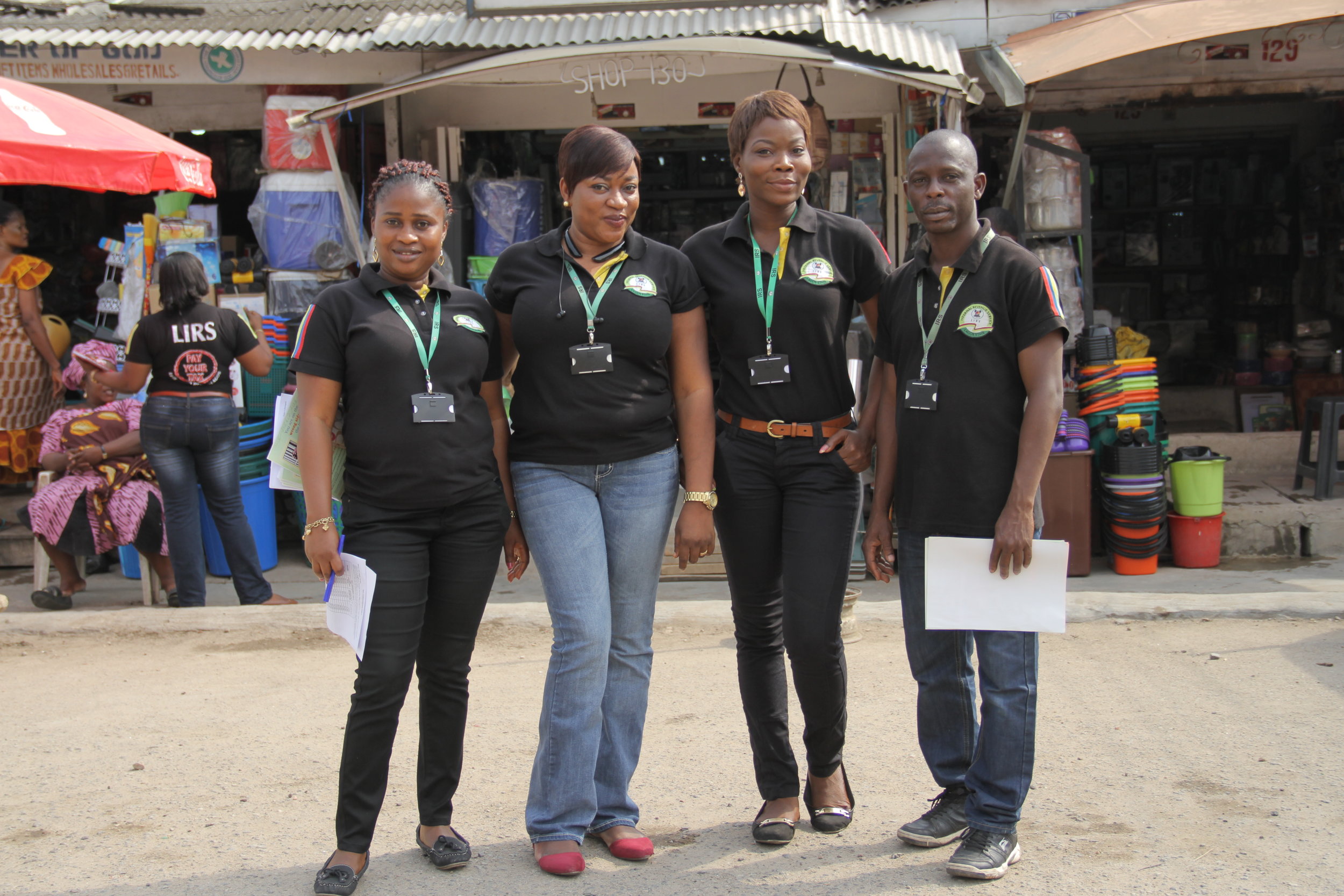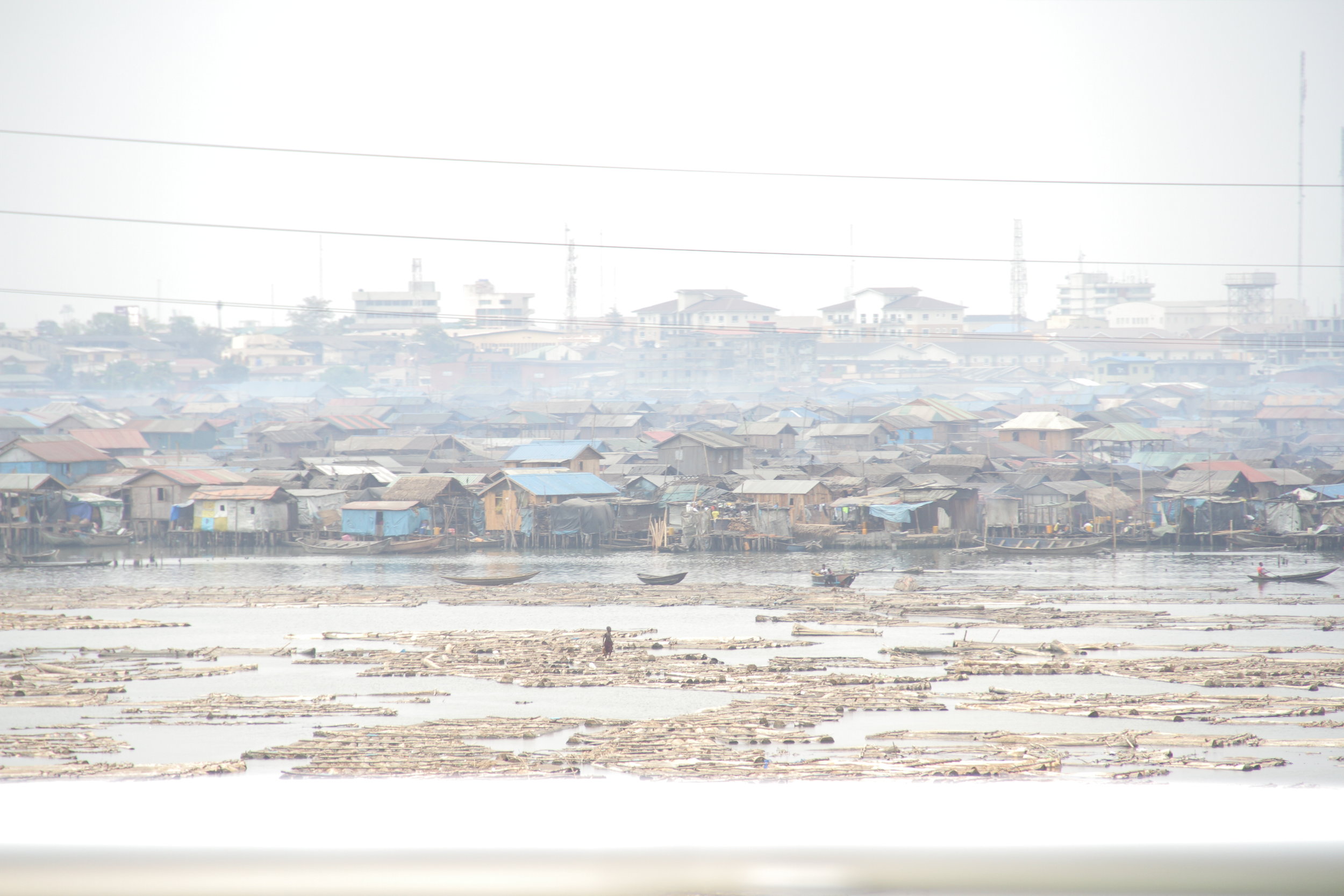The Area Boys Of Lagos
 We cross the Third Mainland Bridge at dusk and ask Okey, our driver, to stop so we can film the sunset. “You got two minutes, make da shot snappy,” he says in Lagosian Patois. Slightly bemused, we jump out and start filming. Angry shouts drift up from the mud flats below. Groups of young men have taken umbrage at our presence, even with the camera pointed away from them and an armed policeman at our side.
We cross the Third Mainland Bridge at dusk and ask Okey, our driver, to stop so we can film the sunset. “You got two minutes, make da shot snappy,” he says in Lagosian Patois. Slightly bemused, we jump out and start filming. Angry shouts drift up from the mud flats below. Groups of young men have taken umbrage at our presence, even with the camera pointed away from them and an armed policeman at our side.
More men emerge from shacks, thrusting chests, pointing finger-pistols like 90s rappers and stalking menacingly towards the ramps that will bring them up to us. It feels precarious. I have World War Z-style visions of them clambering over the side of the bridge. We finish the shot, jump in the car and roar off before they get any nearer. Thus went our encounters with the Area Boys of Lagos: young, unemployed men who engage in coercion, drug-dealing, odd-jobs and (at the extreme end) robbery, kidnap and murder. Their favourite tactic is surrounding cars that have stopped at night and extorting money to ensure the inhabitants are “safe” (if you don’t pay, you won’t be). Whilst they have a passing resemblance to the racketeers of other cities, they are less organised or influential.
But these disenfranchised young men might influence the future of a nation. They are cheap labour for the political organisations plastering posters all over Lagos. They also undo the work of their opponents: we see APC boards torn to shreds and PDP banners daubed with black paint. When rival groups meet, it can turn to violence. Military coups have overthrown several civilian governments (and a few military ones) since Nigeria gained independence from Britain in 1960, but civilian rule has survived since 1999. Goodluck Jonathan, of the People’s Democratic Party, is the incumbent President. His opponent, General Buhari, looks a strong bet to win the country’s forthcoming elections. As his title might suggest, Buhari is an ex-Army man, who briefly ruled the country following a coup in 1984. Having converted to democracy, he is the presidential candidate of the All Progressives Congress, a coalition of Jonathan’s opponents tired of perceived nepotism, corruption and squandering of resources.
Nigeria is federal, so individual states have control over most spending and taxation. Lagos is run by Buhari’s allies, and they have overseen vast Public-Private Investment: roadways thrown across the lagoon, slums cleared and houses built in their place (not always a popular move). At the forefront of this change is the Lagos Internal Revenue Service, LIRS, which claims to have increased tax compliance to 99.5%. Taxation now provides 80% of Lagos State’s revenue, up from 25% in 1999 (the remainder comes from the Federal Oil Fund). We spend a day in Aladea Market with one of LIRS’ “Tax Education & Enlightenment Teams.” Wearing polo shirts emblazoned with “PAY YOUR TAX”, they are the front-line in compliance: teams of three approach traders in a convivial fashion, to explain how taxation works for them. I spot an old woman in a fabric-shack using her laptop to complete an Excel spread sheet of profit & loss.
We are taken see the fruits of LIRS’ labours – apartments available for sale with a 30% deposit and a mortgage, backed by the state, at 9.5%. Demand is so high that they are allotted to buyers through a monthly lottery. The scale of construction at a new site in Illubiri, Lagos Island, is phenomenal. 250,000 square metres of former swamp will become a self-contained community of 1500 homes, with its own police station, power station and water treatment plant. Beyond the security fence and freeway is the other side of Lagos: the vast slums of tin-roof shacks that encroach on the Lagoon. Whilst filming back towards the construction site, we are surrounded by a group of young men who request 3000 Naira (15 USD) to “keep us safe” whilst we are filming. They are led by a man whose bare chest displays a scar the length of my forearm. Okey suggests we pay. I agree. The Area Boys smile and return to their task of painting over PDP posters.
The presidential election was scheduled for February 14th, but the Independent National Electoral Commission has delayed the election until March 28th. Security chiefs insist free and fair elections require troops to prevent violence. Troops that are currently taking the fight to Boko Haram. The opposition accuses Jonathan of political scheming - the delay means the APC might run out of campaign funds - but no-one really knows who the delay will favour. Ordinary Nigerians just want it to be over. In the meantime, business and funding decisions will be paralysed, Lagos will be wallpapered, and the Area Boys will be occupied.




